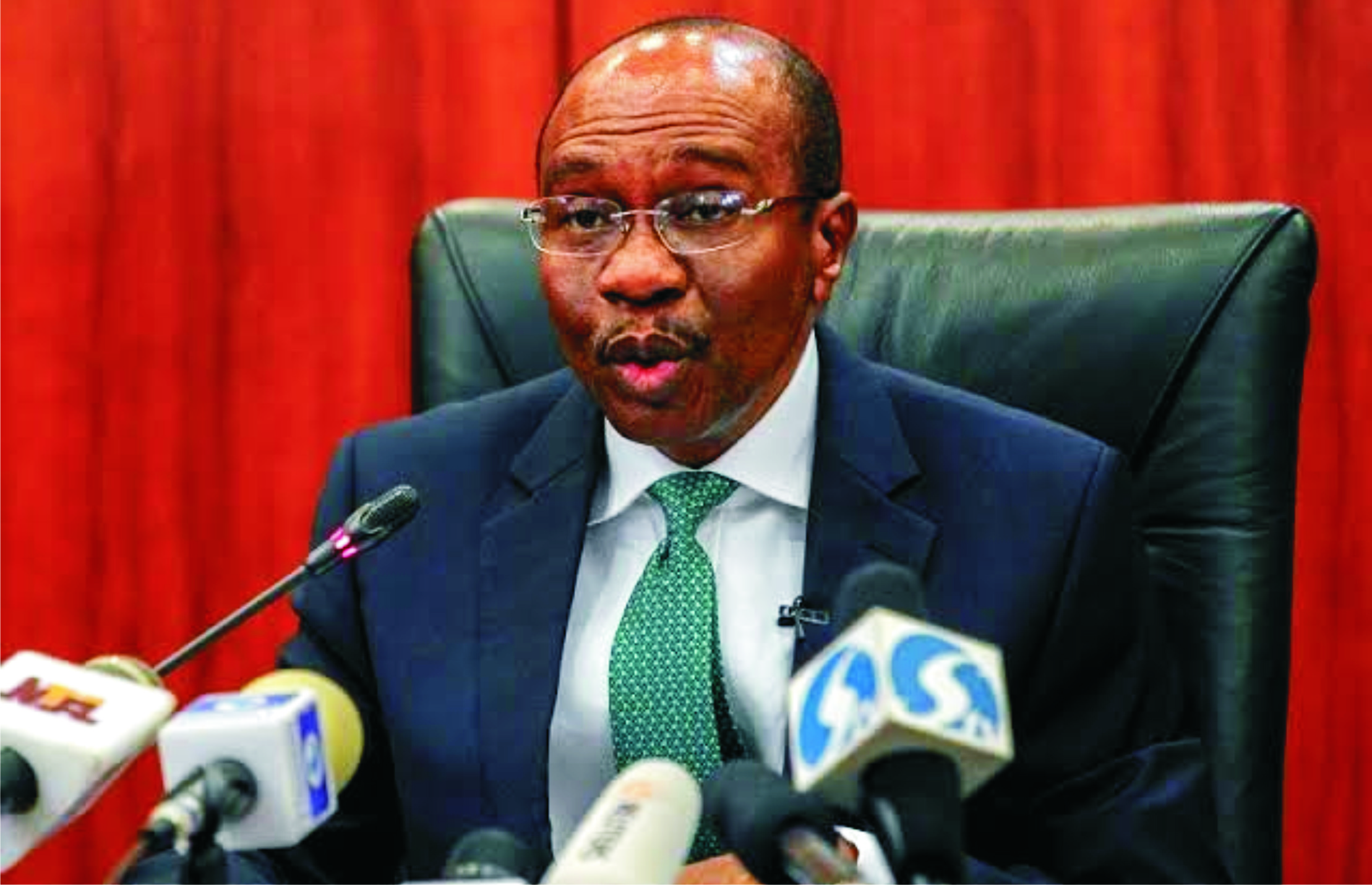Business
Oil Price Can Never Rise Above $100/Barrel Again – Emefiele

The Governor of Central Bank of Nigeria (CBN), Mr Godwin Emefiele, has said that there was no better time to diversify the Nigerian economy than now because the era of crude oil boom was over.
According to him, crude oil can never rise above $100 a barrel anymore as was the case few years ago.
Speaking as a guest lecturer at the first convocation ceremony of Edo University, Iyamho, Edo State, last Friday, Emefiele said: “oil price can never get to above $100 per barrel in our lifetime.
“So, we must just diversify our economy now. We must embrace agriculture and grow the manufacturing sector. It’ll create jobs and generate money into our bank accounts. No more oil”.
Emefiele who delivered the convocation lecture titled: “The Role of Monetary Policy: Towards Economic Growth in Nigeria,” also said there was no apologies for the shut land borders because different countries work with diverse economic policies that suit them.
He said despite criticisms from certain quarters over the apex bank’s monetary policies, the country has remained better for actions it has taken.
“Our unorthodox and unconventional monetary policy is yielding results. We’re not deterred. We can’t allow people to smuggle and dump goods here and kill our local producers. We owe no one any apologies as long as we’re creating jobs and growing the economy.
“For an economy like ours, which is yet to attain its full potential, utilitarian welfare maximization requires a functional consideration for real growth. Thus, growth objectives cannot be overlooked.
“The CBN Act 2007, in recognizing this, provided the Bank with the legal backing to undertake developmental functions that are consistent with price stability. This has enabled the bank to simultaneously promote the development of financial markets and stimulate the growth of the real sector,” he explained.
The CBN Governor, however, lamented that Nigeria’s overdependence on crude oil for over 60 per cent of fiscal revenue and over 90 percent of forex inflows, meant that shocks in the oil market were transmitted entirely to the economy via the forex markets as manufacturers and traders who required forex for input purchases were faced with dwindling supplies.
Transport
Automated Points Concession : FAAN Workers Gave 72hrs To Revise Decisions In PH

Transport
FAAN Announces Pick-Up Points for Go-Cashless Cards

Business
Fidelity Bank To Empower Women With Sustainable Entrepreneurship Skills, HAP2.0
-
Politics4 days ago
2027: NIGERIANS FAULT INEC ON DIGITAL MEMBERSHIP REGISTER DIRECTIVE
-

 Environment4 days ago
Environment4 days agoLAWMA Director Says Sweeping Reforms Have Improved Waste Collection
-
Politics4 days ago
LP Crisis: Ex-NWC Member Dumps Dumps Abure Faction
-

 Politics4 days ago
Politics4 days agoUmahi Dismisses Allegations On Social Media, Insists On Projects Delivery
-

 Sports4 days ago
Sports4 days agoAbia Not Sure To Secure continental Ticket
-
Politics4 days ago
NATASHA ELECTRIC VEHICLES INITIATIVE IN KOGI CENTRAL
-
Sports4 days ago
La Liga: Yamal Records First Career Hat-trick
-

 Sports4 days ago
Sports4 days agoPSG Extend Lead In Ligue 1

